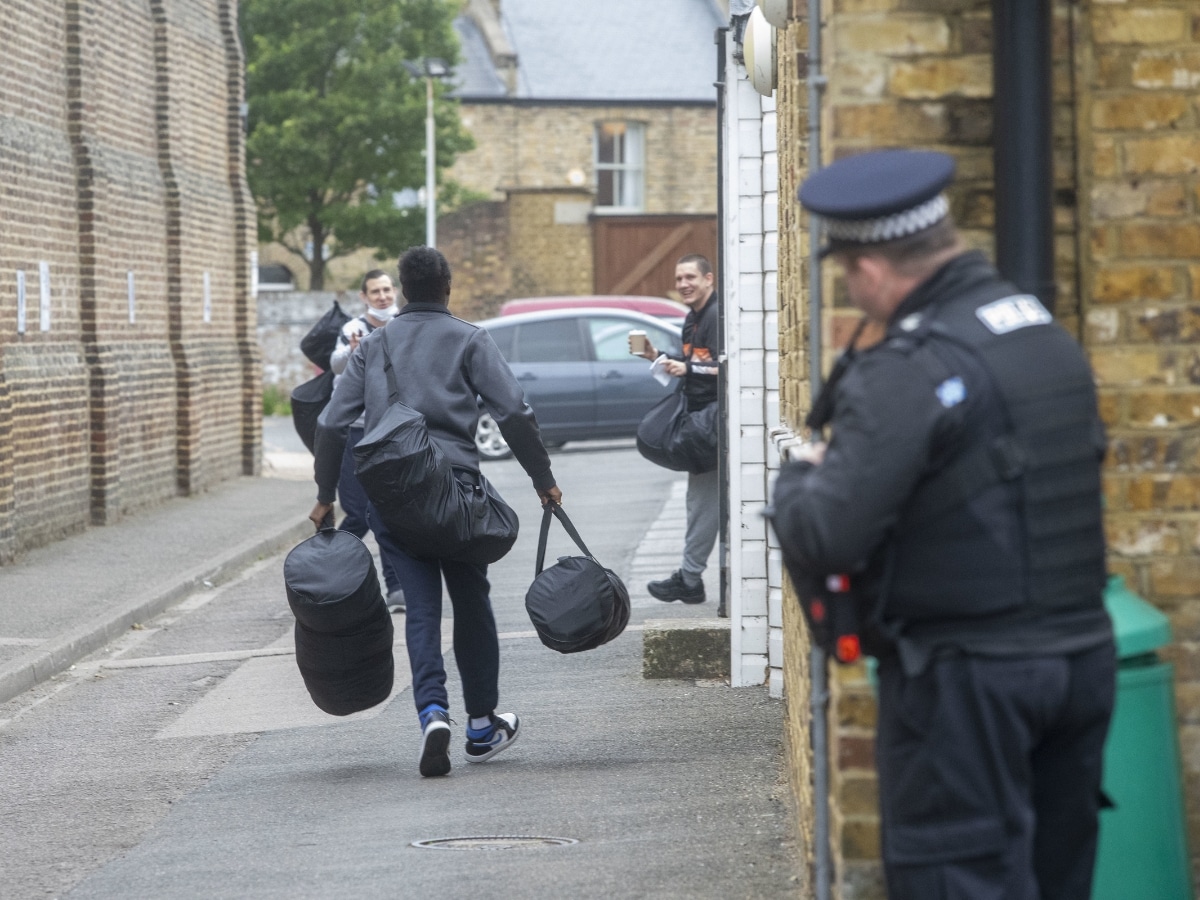The purpose of culture wars is to divert attention from real problems and real solutions. Prime Minister’s Questions (PMQs) this week saw a ding-dong from the subs bench over prisoner releases. Shadow defence secretary James Cartlidge repeatedly asked Justice Secretary David Lammy about the erroneous release of “asylum seekers” from prison.
Lammy got angry, and rather than answer the question, shouted that it was all the Tories’ fault. I would have had some sympathy with Lammy, except he is continuing the same failed austerity that caused this problem. He can’t have it both ways. If it was all down to Tory mismanagement, then sixteen months into government, it’s his fault. If the prison system is a mess because of austerity, it’s his £161,405 a year job to fix it, not ignore it.
In fact, Cartlidge lost track of the number of questions he’d asked. Thinking he had only asked five of his six questions, he got into a brief disagreement with the speaker. He incorrectly referred to Kaddour-Cherif as an asylum seeker. In fact, he arrived as a legal immigrant and was in the process of deportation for overstaying his visa. It seems the people governing this country don’t know their asylums from their elbows.
Performative outrage over prisoner releases
In the middle of the performative cries of “asylum seeker”, the mainstream media have largely ignored the real issue. What the hell is going on in the criminal justice system? 262 prisoners were released in error in the last full year of statistics. That’s up from 115 the previous year. Lammy and co will say that’s because they inherited a broken prison system. That’s true. But the solutions Neo-Labour are touting are all procedural. They’re having a review. And a new IT system will solve the problem, they say.
The prison system in England and Wales has a safe capacity of 81,568 – according to the Ministry of Justice’s own standards, which falls far below the standard identified by prison reform campaigners like the Howard League. Today, there are 87,413 people in prison. It doesn’t take a police-procedural scriptwriter to imagine what will happen. Last year there were 80,000 incidents of self-harm. 27,000 assaults. Here in the North East, HMP Durham is at 175% of capacity.
G4S run four private prisons. Serco run five. Sodexo, famous for serving horsemeat, run six. They return around 8% profit, which comes almost entirely from lowering staffing and lowering wages. Staff are less experienced, paid around 30% less, and assaults on prison officers have reached 10,568, an increase of 254% under austerity. 38% of officers leaving the service have served less than a year. It is part of the cheapskate approach to de-professionalising public services.
Chaos
The Prison Governors’ Association – their trade union – issued a press release:
Austerity introduced a benchmarked prison system that levelled down resources and stripped away individualised regimes. This has left many establishments without the flexibility they need to respond to local challenges.
I don’t think anyone believes prison governors are woke lefties. They are experienced professionals who see the harsh reality day in, day out. In their words, “while political parties showboat and grandstand, the real risk to the public is not being effectively managed.”
Successive governments have ramped up rhetoric on how tough they are. Not a party conference goes by without some politician getting bricked-up courting tabloid headlines about locking people up and throwing away the key. Especially young offenders.
Yet kids raised in care are five times more likely to end up convicted by the age of 24 than other kids. Who has the duty of care the change this? No one has the political bravery to tell the truth. That it is entirely possible to be a hard-case guilty of a violent crime while simultaneously being a vulnerable adult.
Real-life implications
In September 2019, I visited HMP Northumberland in my capacity as regional Mayor. I had no role in managing the criminal justice system, but we set up a programme to get inmates a job before they left. One course trained them in rail maintenance. It’s hard graft, and pays a fair wage. They were able to become qualified while still inside. They were set up with interviews. And they had a job earning decent money to go to when they got out.
I got talking to a couple of lads nearing release. They’d been sentenced to ten years for GBH. The did it while out of their heads on drugs, they told me. For years they blamed someone else, they said. It wasn’t their fault. It was their parents, their teachers, their carers. No one helped them, they said. They enrolled in a prison programme led by ex-drug users. “One day, it was a like a light went on. It was down to me. I could decide to change.”
I asked them what needed to change in the criminal justice system. What would actually make a difference. If you’d given me a hundred tries, I would never have guessed their answer. “The sentences are too short,” they said. I asked them why. “You get lads with three month sentences. They’re out in five or six weeks. The drugs have hardly left their system. They’ve lost where they were staying, so they’ve got nowhere to go. And who’s nice to them when they get out? The drug dealers.”
Prisoner releases are not the issue here
We don’t need more people in prison. We need to get prisoners back on their feet. Estimates say that 90% of burglars who are repeat offenders have a drug problem. It’s time we grew up as a society. It is entirely possible to recognise that crime is both the responsibility of the individual and a product of their circumstances. I firmly believe there is a place for prison, not least to protect the public from those unable to restrain themselves. But it is childish to use the political rhetoric of righteousness and revenge. It’s time politicians stopped performing for the cameras, listened to the evidence, and fixed the problem.
Featured image via the Canary













